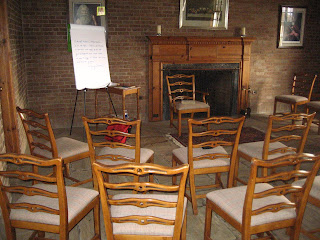November 21, 2011
http://www.nmha.org/go/codependency
http://www.nmha.org/go/codependency
The
above article discusses codependency as a learned behavior; what is learned can
be unlearned. Many people have heard of codependency as it relates to those who
live with individuals addicted to things such as drugs,
alcohol, sex, and gambling. However, codependency can occur in any type of
relationship, even those relationships which do not
involve someone else’s addictions. Codependency,
which I choose to speak of as loss of self in someone else, can occur in a
variety of relationships including our relationships with our partners, our
children, our aging parents, our friends, and our co-workers, and its origins
can come from a number of possible sources that include but are not limited to
living with addictions, chronic illness, abuse, neglect, perfectionism, and
rigidity.
In
Disentangle: When You’ve Lost Your Self in Someone Else, the central
theme is codependent relationships. It offers practical tips on how to get
emotional freedom from such relationships and
to rediscover your true sense of self. The process is not easy, but you can do
it. I have worked with many individuals over the years who felt trapped by such
relationships and yet many have benefited by this recovery process. As you
begin this disentangling process, I have found it useful to understand it in
terms of these ten Basics:
It’s
about the experience of losing your Self
It’s
about unhealthy attachments
It’s
about finding you
It’s
about getting balance
It’s
about intervening on your behalf
It’s
about spiritual growth
It’s
a process without rules or sequence
It’s
a process that takes time
Every
day ain’t great
Don’t
go this alone
In
future blogs, I will delve into each of these Basics and cover many other aspects of this disentangling process
including specific ideas for change. However, for now, an understanding of the Basics is a good foundation for learning
and growth.




.jpg)





%20-%20Screened%20Porch.jpg)



